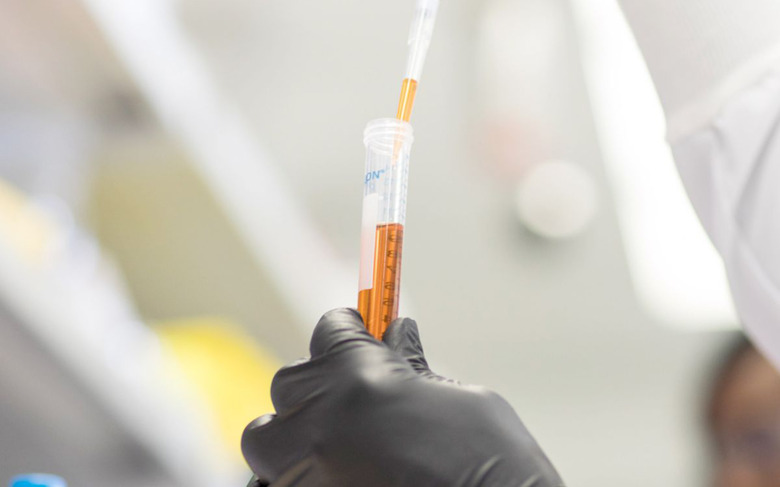FDA Fully Approves Pfizer-BioNTech COVID-19 Vaccine: What That Means
The FDA has fully approved a COVID-19 vaccine, with Pfizer-BioNTech's immunization for coronavirus the first such drug to advance past emergency use authorization. The decision means that the pharma companies will be able to market the vaccine – which will be known as Comirnaty – commercially, though initially not for the full range of people that the current EUA covers.
Pfizer-BioNTech Comirnaty has been FDA approved for the prevention of COVID-19 disease in individual 16 years of age or older. The existing EUA will continue, however, and under that the vaccine will be administered to individuals 12 through 15 years of age.

Use of a third shot, as a booster vaccine for certain immunocompromised individuals, will also continue under the EUA which the US Food & Drug Administration extended earlier this month. Come late September, the Biden Administration expects to begin widespread booster shots, in an attempt to keep the population protected amid COVID-19 variants such as Delta.
"The FDA's approval of this vaccine is a milestone as we continue to battle the COVID-19 pandemic," Acting FDA Commissioner Janet Woodcock, M.D. said in a statement. "While this and other vaccines have met the FDA's rigorous, scientific standards for emergency use authorization, as the first FDA-approved COVID-19 vaccine, the public can be very confident that this vaccine meets the high standards for safety, effectiveness, and manufacturing quality the FDA requires of an approved product."
The original EUA – a process by which the FDA can fast-track promising drugs and treatments to deployment during times of pandemic or other health emergency – was granted on December 11, 2020. Since then, Pfizer-BioNTech's drug has been one of three vaccines used in the US, alongside Moderna's and Johnson & Johnson's vaccines. Like Moderna's, Pfizer's vaccine relies on messenger RNA, or mRNA, which is used by the body to prep a mimic of a distinct protein in the virus which causes COVID-19.
That allows the body to react more rapidly, and effectively, to defend the individual against that virus, should they be exposed to it. However the mRNA does not stay in the body for a long time, the FDA points out, and it does not alter, or get incorporated into, an individual's existing genetic material.
"Comirnaty has the same formulation as the EUA vaccine and is administered as a series of two doses, three weeks apart," the FDA says.
One key hope with this big step forward of full approval is that some lingering vaccine skeptics could be finally persuaded that the drug is safe enough to take. "While millions of people have already safely received COVID-19 vaccines, we recognize that for some, the FDA approval of a vaccine may now instill additional confidence to get vaccinated," the FDA's Dr. Woodcock says. "Today's milestone puts us one step closer to altering the course of this pandemic in the U.S."
As part of the vaccine approvals process, the FDA analyzed effectiveness data from approximately 20,000 vaccine and 20,000 placebo recipients, aged 16 and older, who did not have evidence of the COVID-19 virus infection within a week of receiving the second dose. Vaccine safety, meanwhile, was evaluated in approximately 22,000 people who received the vaccine, and 22,000 people who received a placebo, also aged 16 years or older.
The vaccine was 91-percent effective in preventing COVID-19 disease, the study found. Side-effects reported included symptoms like pain, redness and swelling at the injection site, fatigue, headache, muscle or joint pain, chills, and fever. Ongoing monitoring will continue.
